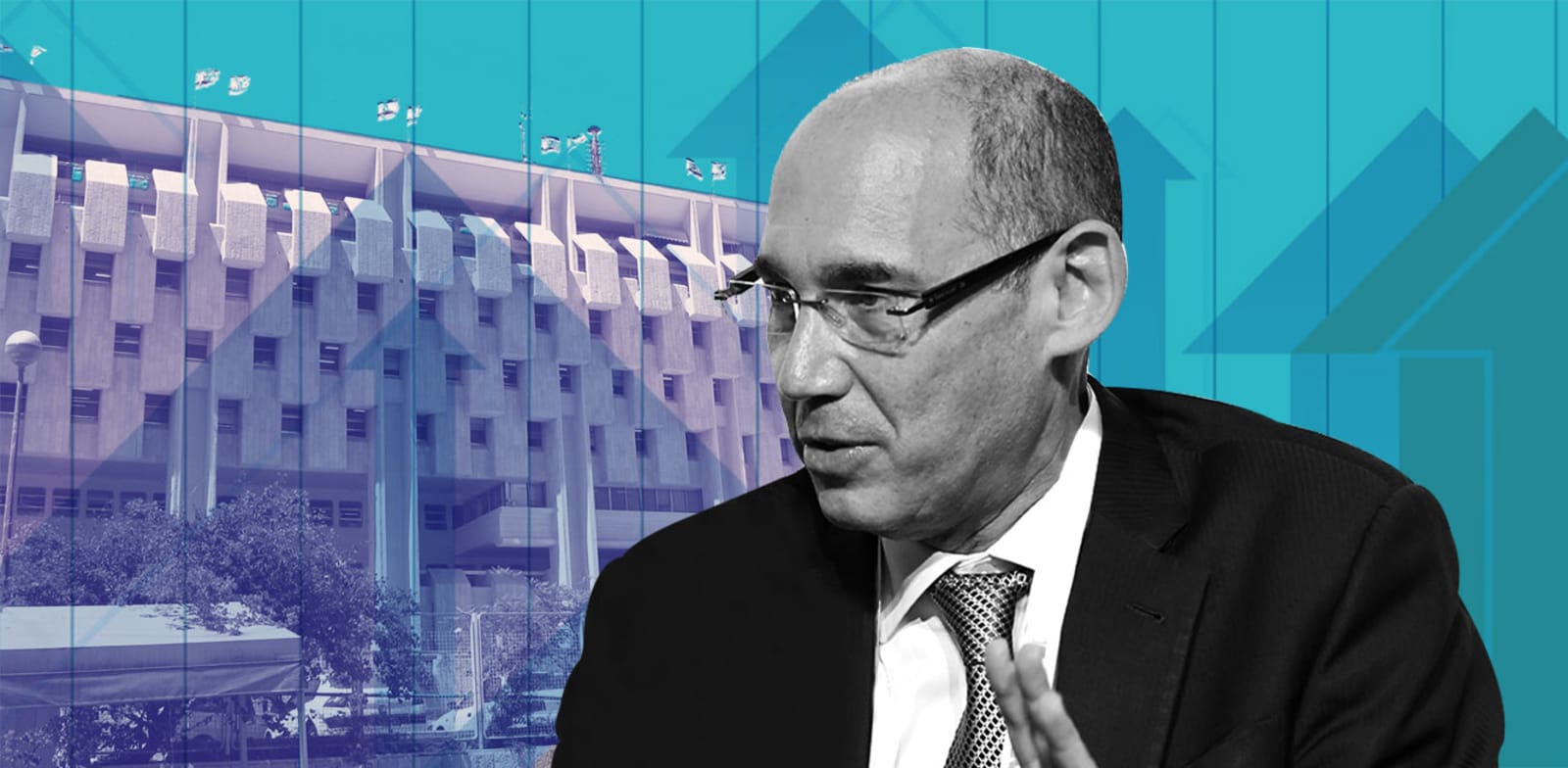Just after the Bank of Israel Monetary Committee left the interest rate unchanged at 4.5% for the 12th consecutive time, Governor Prof. Amir Yaron criticized the Central Bureau of Statistics new method of calculating inflation and expressed cautious concern that the government will again need to raise taxes.
The figure that perhaps most influences the interest rate decision is the level of inflation, which is currently 3.1%, slightly above the 3% upper limit of the central bank’s annual target. Inflation has been volatile in recent times, due to airfares, which although a very small component of the Consumer Price Index (CPI), have boosted inflation. This, even though it is a temporary rise, which is expected to decline in the future.
Yaron complains “The Central Bureau of Statistics has switched to a different method, in which there is more seasonality in the CPI. The switch to the new method causes more forecasting errors, at least at first.” He added that in the meantime, the effect is still ongoing, because “The data were also very, very affected by geopolitical events and foreign airlines that stopped coming here.” However, it also affects prices for the entire public, which is reflected in consumption costs in retail chains. Yaron added, “We are not looking at one figure. We didn’t panic when inflation rose to 3.6%, and even when it’s now at 3.1%, we’re not going to get complacent.”
Is this the correct approach in your opinion in the case of rents, which constitutes about a quarter of the CPI?
Yaron responded negatively. “In renewable contracts, we see a certain stability, while in new contracts, we saw an increase of 5.2% over the past year.” According to him, the problem is, “As time goes by, this also rolls over to the entire housing index, and in the CPI it is also part of the ‘stickiness’ of inflation, and it is also a figure that is less affected by the exchange rate (the shekel has strengthened by 7.3% since the start of the year). Therefore, in this area there is potential for stickiness, and perhaps even a certain acceleration in rental prices, certainly in areas of the country where buildings were damaged, and the people who were evacuated will most likely want to rent in that area.”
Will it be necessary to raise taxes again in the upcoming budget, because of the great defense needs following the war?
Yaron is cautious and observes, “First of all, we need to understand where we are in the defense budget. There are very large differences between the Ministry of Defense’s needs and what the Ministry of Finance is talking about.” He sees the budgetary differences between them, “Deriving, at the moment, from the view of where we are in terms of security risks and what is right for security in this sense.”
RELATED ARTICLES
It can be said that defense needs have increased or decreased, or that they can be spread out differently over time, and that allows for degrees of freedom in budgetary management. But assuming that there will still be differences, the government will have to find sources. First of all, priorities need to be changed on things that do not support growth. The plan, he said, is to “Give up on inefficient things, such as unnecessary offices and negative incentives to go to work.”
As for builders’ promotions for buyers of new apartments, in efforts to get the public to come back and buy apartments, Yaron says that the builders do not work for the Bank of Israel and are not circumventing its restrictions. “In the 20-80 or 10-90 deals, you do not necessarily have to go and sign on a mortgage, certainly today when there is a certain lengthening in the time to complete construction. Although it is not clear that this is the right thing for that person or household. Therefore, from a consumer perspective, it was important to us that those who have already made the biggest deal of their lives go through a signing process (for a mortgage). In the case of a mortgage in the balloon route (a delayed mortgage), the customer does sign for a mortgage, so it’s definitely not the same, and there has been an improvement here.”
And yet, haven’t the builders managed to bypass you?
Yaron replies with a smile: “Will their creativity bring more deals? Of course, we will have to examine them and see that they do not create excess risks.”
Banks continue to earn huge amounts these days. The first quarter of 2025 was once again particularly strong, with a combined profit of nearly NIS 8 billion. Will you allow banks to distribute a 50% dividend? Bank shares have recently soared following this possibility.
Yaron: “Throughout the war, we have been cautious in this area as well. We haven’t made a decision yet, but we will think about the issue of dividends ahead of the quarterly reports.”
Published by Globes, Israel business news – en.globes.co.il – on July 8, 2025.
© Copyright of Globes Publisher Itonut (1983) Ltd., 2025.








